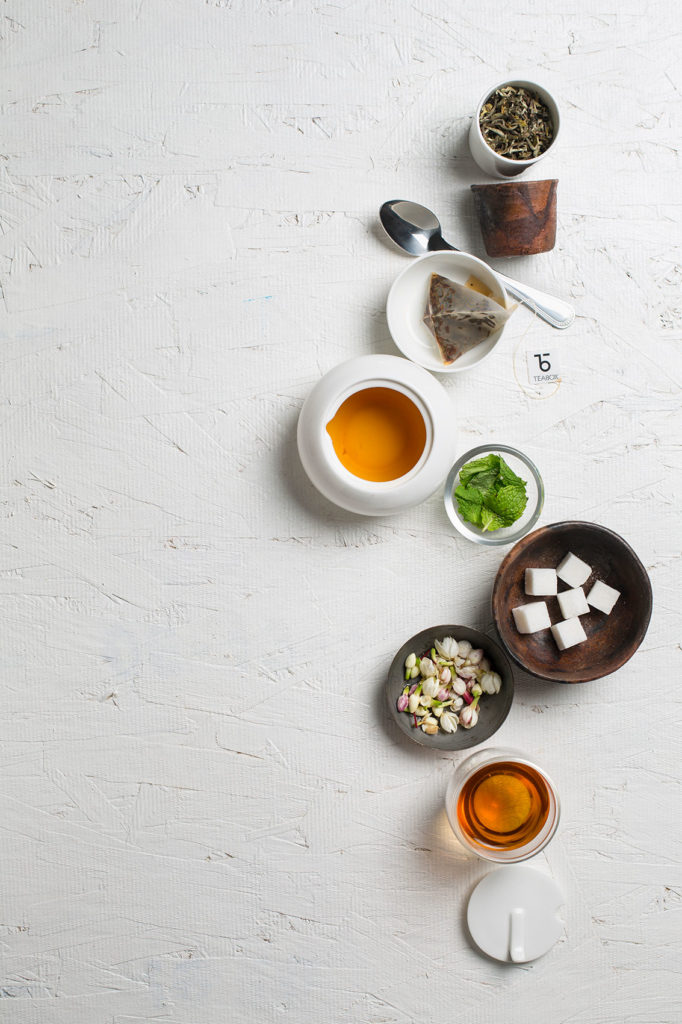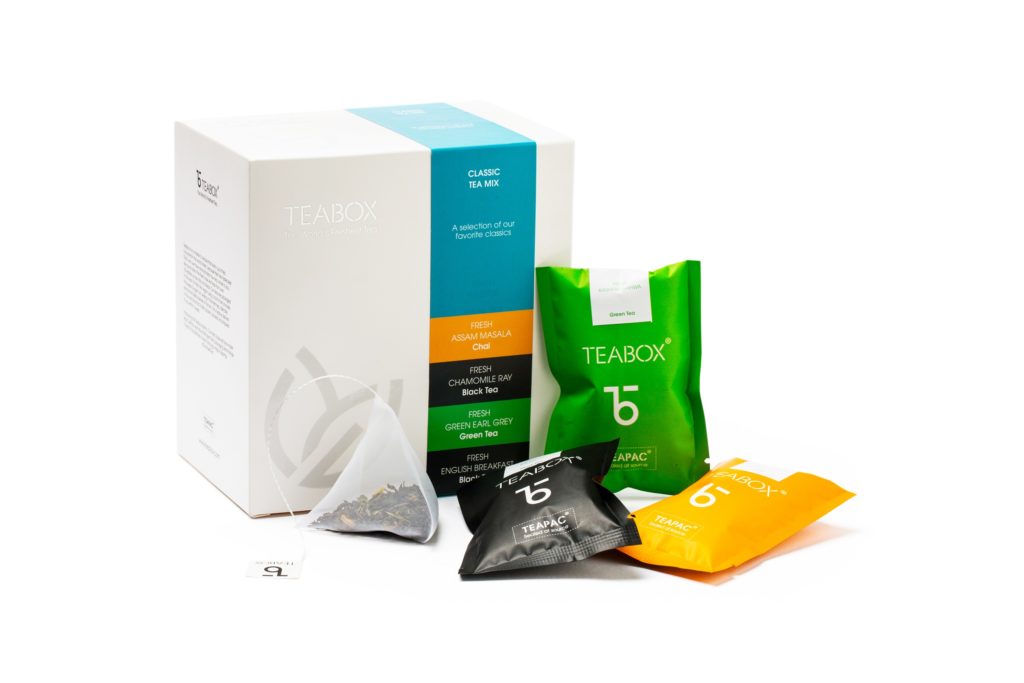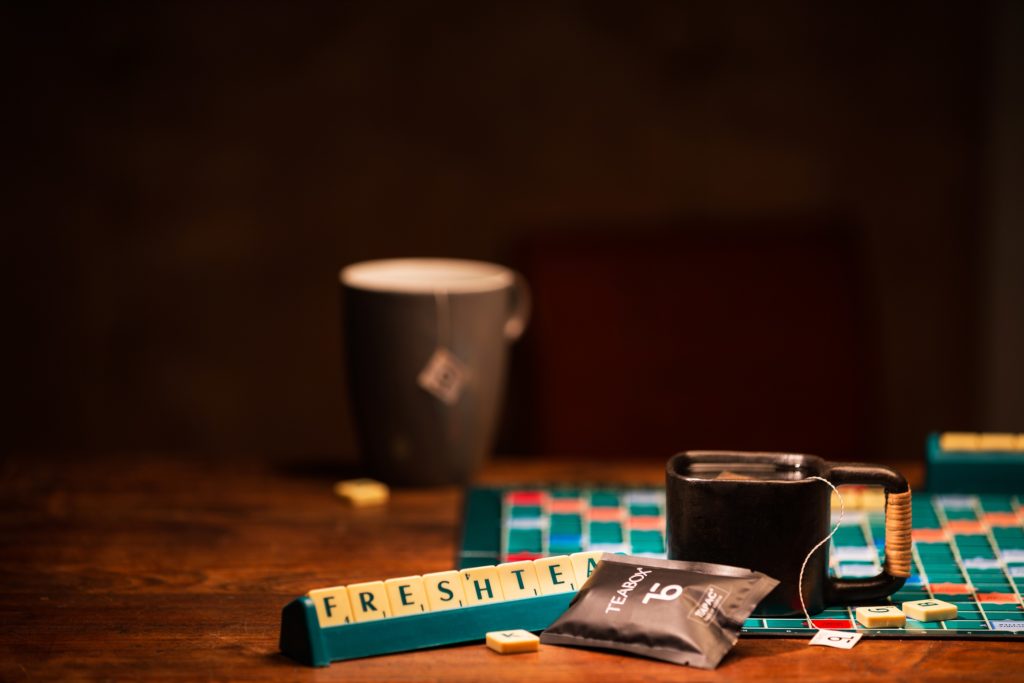
For most people, a mandatory morning time routine is to have a cup of tea. And this cup of tea becomes more important when you are travelling away from home and are looking forward for a perfect cup that will give you the perfect start to the day. Naturally then tea has come to occupy an important part of the hospitality business with both hoteliers and tea vendors taking tea to the next level. Tea today, is not a commodity. Rather it is a lifestyle product.
Tea Time
Tea’s used in hotels are a comprehensive mix of traditional first flush Darjeeling’s and Assam, along with other popular teas like Earl Grey and English Breakfast. “However looking at the trends of moving towards healthy eating we also offer a wide variety of Tisanes and flowering tea’s. Jasmine pearl tea is extensively used in our Asian restaurant as the in-house pour with food. As from the chef, ‘Homemade Green Tea ice cream’ is amongst the favourite of guests,” said Ashish Nehra, Director – F&B, JW Marriott Kolkata. Looking at the rise in demand of curated tea experience, the tea selection at park Hyatt is currently going under an overhaul. “Our soon to be launched tea selection will host some of the finest selection of boutique and famed estates. From Herbal, Black, Regional, Green to Oolong, the selection will cater to each tea aficionado. One of the most popular trends at Park Hyatt Hyderabad today, is the local flavours brought to the table at The Living Room. Be it intimate conversations, or crucial business decisions; all accompanied and a favourite amongst many is the famous Irani Chai,” said Mohit Malhotra, Executive Assistant Manager – Food & Beverage, Park Hyatt Hyderabad. Blending is going to be the hot word of the year. This translates to more creative mergers of tea with other herbs, spices and fruits for beverages; more tea-infused jams and desserts; and even more attention on cocktails. The quality and freshness of our teas is of prime importance. “We visit the tea gardens, taste and select the teas we want to sell. The teas are vacuum packed to retain freshness. We source our teas from some of the best tea gardens in Darjeeling, Assam, the Nilgiri, Kangra, Sikkim and now even Nepal,” explained Kaushal Dugar, CEO and Founder, Teabox.
Tea Menus
Tea Nest, Nature Resorts in Coonoor serves organic basil lemon tea, organic rosemary tea (all in house specialities) jasmine tea, chamomile tea, silver tip, golden tip, lemon grass tea, tea nest blend tea as well as the regular black tea. “It is probably the first time a restaurant in nilgiris has offered tea-themed menus – both vegetarian and non-vegetarian. Inspired by the unique setting of our home stay, our chefs have created a fine dining experience in which every course is flavoured with some element of tea. Tea works well as meat tenderizer because of its tannin content. Normal black tea contains most tannin amongst all tea, evident by its dark color. This makes black tea very effective and all-natural meat tenderizer compared to other products,” opined Jyothish K Vasu, Manager Operations, Tea Nest, Nature Resorts. Incidentally the philosophy of Tea Nest is “experience the tea out of tea cups” so here you can actually eat tea as they have a specially curated tea menu with a selection of both vegetarian and non vegetarian food. So whether it is flowery orange pekoe organic tea-smoked paneer salad – paired with orange pekoe tea, orange pekoe tea kettle broth soup, green tea lemon grass sorbet and tea braised paneer brochette – paired with the house special, organic rosemary tea it is all here. In fact pairing tea with food is also on the menu. So you have slices of yam or cottage cheese with organic pickled tea leaves and herbs – paired with the local brew (singara estate tea), tea braised spaghettetti aglio e olio – paired with frost tea and tea custard topped with chamomile tea compote – paired with Nilgiri black tea! Tea has the property to bring out more floral taste in desserts, and enhance the fruitiness, whereas some teas help in bringing smokiness flavour in foods, without overpowering the other flavours in the dish. “After wine tea has been the next best choice for chefs to use in their dishes. Apart from single estate teas, we have an in-house R&D team who works on creating newer blends, which the consumers would like to try or include in their dishes,” said Dugar.
Vendor Speak
Teamonk Global has four broad categories of tea – Black, White, Oolong and Green and 46 variants of teas including their unique pyramid tea bag formats. “Tea is mostly personalised to suit individual taste and therefore all categories have a best seller in them. However, within Green tea variants, tea with natural ingredients like Mints, Tulsi, Jasmine do well with the consumers. White tea as an exquisite genre is also picking up among all tea lovers,” said Ashok Mittal, CEO Teamonk Global. AusumTea specialises in a range of signature, handmade and organic tea blends and tisanes (fruit infusions) that are packed with a variety of herbs, fruit, flowers and spices to make tea drinking a bold and vibrant experience. “We ensure that our brews contain no added sugar and are preservative-free, with low/no caffeine present in them. At present we have 9 blends in our portfolio and are looking to add an equal number by the end of this year. We currently offer our blends as loose leaves and are shortly diversifying into teabags,” said Mayura Rao and Medha Rao, Founders of AusumTea.
Winds of Change
Good quality tea is produced in India but mostly exported out of India. Consumers today are seeking healthier and innovative food alternatives which can help them look good and feel good. Tea is an integral part of the consumption basket so innovations and healthier alternates in tea is a natural by product. “We have initiated a food pairing and innovation initiative which allows consumers to explore with tea beyond its scope as a beverage. While, mocktails and cocktails synergise in the line of beverage creation, replacing water with fortified green tea and white tea is the new initiative being explored around food worldwide. We have a nutritionist and a food innovator onboard to help us explore tea beyond its scope as a beverage,” said Mittal. Uzma Irfan, Director, The Prestige Group and Founder, Sublime House of Tea added, “of late, the tea market has been flourishing because of the awareness spread about the benefits of green tea. Slowly, consumers are realizing that many other variants of tea have just as many health benefits, and there’s an increased demand for exotic flavours like Oolong, chamomile, and the likes. Industry chefs and mixologists generally prefer to work with long leaf tea in preparing creative concoctions, and consumers show a lot of interest after we explain the teas to them.”
Quality Matters
Tea culture in India is not new and hence there is a huge demand of good quality Assam and Darjeeling Tea for select connoisseurs who enjoy the right cup. However the most popular tea still remains home style readymade tea with milk which more often than not is prepared with the CTC variety. “Matcha has taken a new direction in some cities due to health benefits. Matcha has gone as far as Matcha latte’s and Matcha ice creams as well. While I do not see an increased demand on variants like Lapsang and traditional Souchong’, flowering teas and tisanes however are definitely making their mark,” said Neha whose hotel is soon coming up with an exclusive tea menu with afternoon tea concept at JW Lounge. “Restaurant developer Baum+Whiteman thinks tea, especially matcha, will continue to grow because bitter flavours are going to be important this year. We’ll see colder brew and carbonated versions of tea this year. Consumers increasingly view tea as a beverage with multiple health benefits as tea producers tout tea’s high levels of flavonoids, an antioxidant,” added Malhotra. India is one of the largest producers of tea in the world, and thus good quality tea is widely available. “India is famous for tea production, but if you give Darjeeling tea or Assam tea to someone, they will not be able to recognize which tea they are drinking. Darjeeling tea is exotic world over, but people fail to appreciate it in our own country. The most favoured tea in India is ‘Chai’ which is an indigenous preparation of tea,” said Snigdha Manchanda, India’s First Certified Tea Sommelier & Founder of TeaTrunk.com
Choosing Suppliers
Naturally working with the right supplier base who can supply consistent quality consistency and quantity at regular intervals is the key. While some hotels prefer working with local suppliers some others prefer to directly deal with tea estate owners? “We prefer to work with local suppliers as they often are more reachable and able to supply required quantities sometimes at shorter notice. Tea-Estate owners have a minimum quantity requirement per variety, which is not always possible if you’re providing a vast variety of Tea Selection, and many tea lose their freshness and aroma beyond a certain shelf life,” said Neha. There are a number of key players offering an extensive portfolio, however, the key element here is to source a partner who is able to educate and create a selection which is indigenous and caters to the specific requirements of the hotel. “It is imperative to remember that tea should be treated as wine or any exotic ingredient, which can be seasonal. Therefore, the selection must be ever evolving based on seasonality, change in the food menu etc,” said Malhotra. Rahul Gautam, Assistant F&B Manager, The Leela Ambience Convention Hotel, Delhi explained, “we opt for long term contracts as we believe that, the longer the term a supplier provides to a business, the better is their understanding of the needs and wants of that particular business and the consequent business processes involved. A long term contract allows for better amalgamation and results in service improvement, making the entire cycle more efficient. Once the tea suppliers are finalized, we invite quotations from each supplier. Then based on these quotations is a supplier confirmed.”
Working with Tea Sommeliers
There is a rise of tea sommeliers today and both hoteliers and vendors are associating with them to leverage their vast knowledge to educate chefs and end-customers about the finer nuances of tea and the best way to appreciate it. A tea sommelier’s trained palette is sensitive to the numerous flavour profiles of tea and that helps match them with different foods to recommend tea and food pairings. “We are not tea brokers, traders or re-sellers. As craftsmen, we work directly with tea gardens, from where we source the teas and craft our own unique blends. Hence, our teas are differentiated from your regular supermarket teas, even if they have the same name,” said Manchanda. “We have empanelled a host of tea sommeliers and F&B experts to work in tandem with us to reach out to the end consumers and help take our tea mission to the tea lovers around the world,” added Mittal. “We do work with tea sommeliers and give guests an educative session that focuses on tea history, medical advantages and how to mix correct tea in light of the fact that diverse teas having distinctive temperature to get the greatest flavour. We do have tea estate walk clarifying in insight about the climatic condition required for tea, soil, elevation, the sort of tea plants developing in Nilgiris and obviously we need our visitors to feel the tea in total,” said Vasu. “As the trend moves towards a rise in the number of sommeliers, we ensure that we use their expertise to keep the consumer well informed. For instance, we work closely with tea sommelier, Anamika Singh from Delhi. She has conducted multiple workshops explaining and demonstrating different kinds of tea and how best they can be brewed. We have also worked with chefs to demonstrate how tea can be incorporated into cooking. The main purpose of Sublime House of Tea was to educate people on tea as not just a beverage, but also an art form. We’ve achieved this using multiple means, be it through workshops conducted by veterans in the industry or through other forms of content, including digital books on the Art of Tea, created by a chef and sommelier,” added Irfan.
Conversation Starters
Another important way to engage customers to understand tea is to have events that go beyond the clichéd monsoon ‘Tea Pakora’ routine. “In many ways, Sublime House of Tea has gone beyond ‘Tea and Pakoras’ and educated people on the newer and more exotic flavours of tea. This has been done through workshops where we paired tea with art, showcased the more artistic side of tea, and invited a sommelier to talk more about the different kinds of tea. The idea has always been to educate the audience while keeping them uniquely engaged, and we have constantly received an enthusiastic response to these initiatives,” said Irfan. Much as tea tasting is a chemical science, most of it ultimately comes down to the art of tea making. “In our journey, we have leveraged the vast knowledge from estates that we source from to help us understand the basic behaviour of tea such as – main notes, ideal method of steeping, storage etc. To build on this, our tea tastings have convinced us that no two people are able to identify the same taste or aroma that they are experiencing while drinking the tea. The ultimate test is the organoleptic test – the use of sensory organs to judge a cup of tea to suit an individual’s taste,” opined Mayura Rao and Medha Rao. Well there is so much more brewing in your tea cup now that it is indeed tie to raise a toast to the cup that matters!
This story appeared in the April 2017 issue of Hotelier India here: Hotelier India Tea

